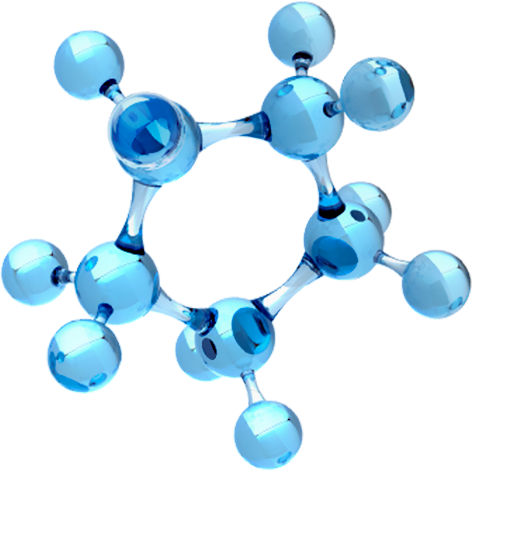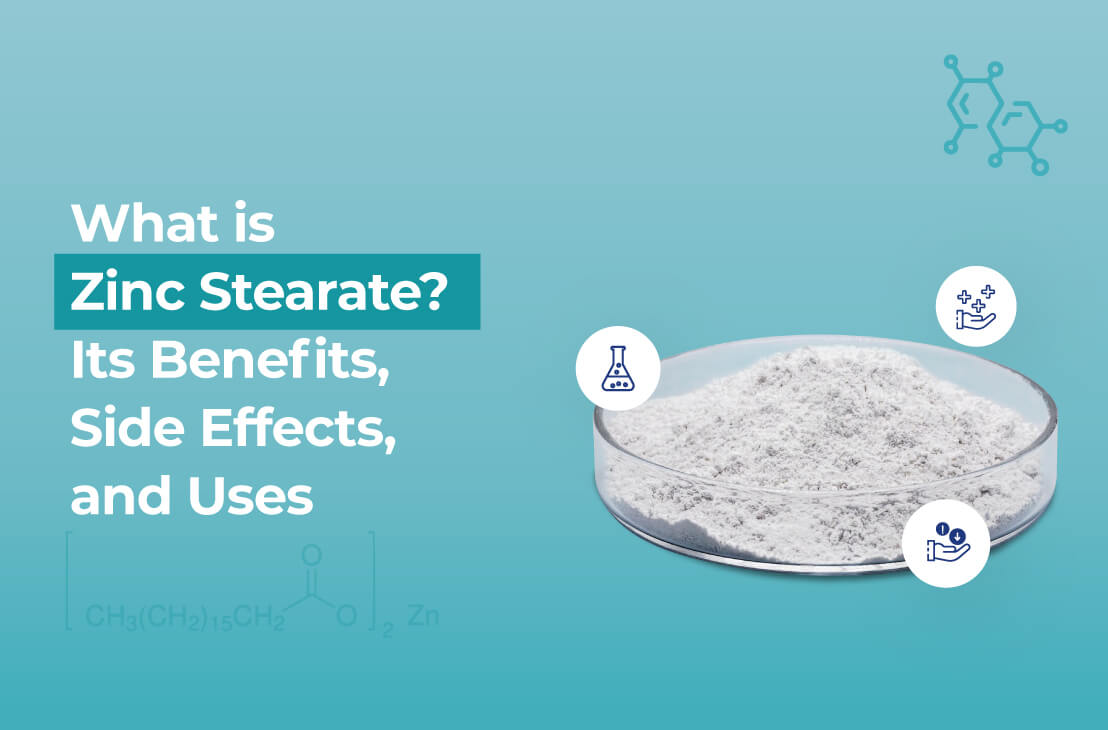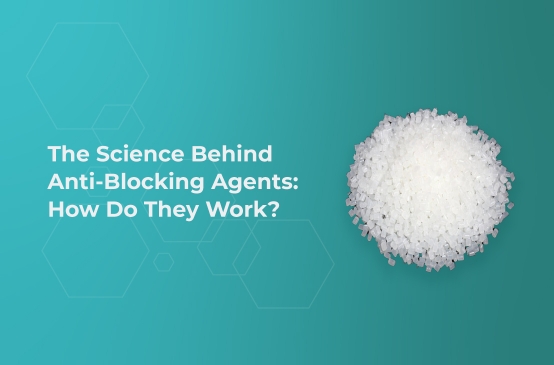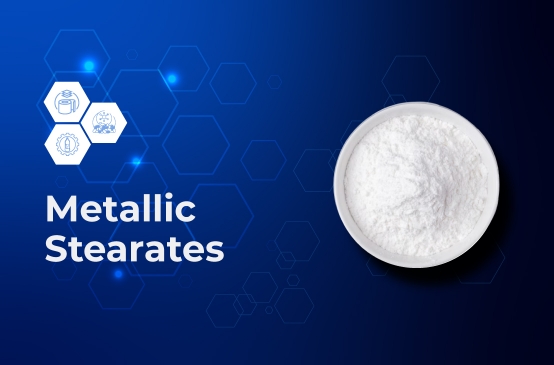When discussing the current food items or the preservatives used in minor packaged goods, one mind may also consider a substance called “Sodium Benzoate”. This chemical has been a confusing mix of benzoic acid and sodium hydroxide and is also considered the stearate or salt of benzoic acid. Benzoic acid itself separately is used to make a variety of goods, including insect repellents, topical medications, perfumes, and dyes. Sodium benzoate is frequently used to balance the pH of food and preserve it by preventing the growth of microorganisms.
Sodium Benzoate is a debated chemical in the industry of food and beverages due to its characteristic of being man-made. Its parent chemical, i.e. benzoic acid, is itself a naturally occurring substance that can be found in cinnamon, berries, plum, and apples. The physical features of sodium benzoate are that the substance is in white powdery form, is odorless and crystalline in formation, and is strictly known for its ability to stop the growth and production of bacteria and fungus.
Nowadays, a growing number of consumers adhere to the so-called "clean label" trend, that is, they favor and select the least processed food items, as a result of the numerous reports highlighting the detrimental effects of food additives. Sodium benzoate constitutes one of those substances to stay away from. Some studies report its harmful effects, while others demonstrate its potential for treating conditions like anxiety, depression, schizophrenia, autism spectrum disorders, and neurodegenerative disorders. It was discovered, for instance, to have mutagenic effects, produce oxidative stress, interfere with hormones, and lower fertility.
Sodium benzoate, or E211 in European nomenclature, is a tasteless, odorless salt of benzoic acid that dissolves readily in water. It is added to food as a preservative in specific amounts because of its anti-fungal and antibacterial qualities. It prevents mold, yeast, and bacteria from growing. The Food and Drug Administration approved sodium benzoate as the first food preservative (FDA). Its consumption can range from 0 to 5 mg per kilogram of body weight. Additionally, the FDA lists it as GRAS (generally recognized as safe). If sodium benzoate is taken in doses below five mg/kg of weight per person per day, it is thought to be safe for human health.
Sodium Benzoate Benefits
Sodium Benzoate can be a part of your life in multiple aspects. This substance works well for most of the things that need to be preserved and need to stay longer before expiring or succumbing to harmful bacteria or restless fungi.
Benefits of Calcium Stearate Dispersion
-
Packed And Carbonised Edibles
Sodium benzoate is still a common food additive and was the first preservative approved by the FDA for use in food. It is categorized as Generally Recognized As Safe (GRAS), indicating that professionals deem it safe for use in the prescribed manner. Because of these qualities, foods with an acidic pH, like fruit purees and pulps, jams, pickles, pickled herring and mackerel, margarine, olives, beer, fruit yogurts, canned vegetables, and salads, are preserved with sodium benzoate. Sodium benzoate is most frequently added to sauces, tomato paste, fruit preserves, mayonnaise, margarine, and carbonated beverages.
-
Effects For Pain Relief
Acute pain along with chronic pain are the two primary categories of pain. One possible explanation for sodium benzoate's analgesic effects is that it is a D-AAO inhibitor. Research has demonstrated the potential significance of these inhibitors in the management of neuropathic pain as well as chronic pain, including pain related to bone cancer. Sodium Benzoate is considered to be a pain reliever in its forms mostly for chronic pain and has yet to show any signs of effectiveness towards acute pain. When various scientists and research paper writers conducted a few tests on mice for pain-relieving properties of sodium benzoate, it was found that the substance reduced the already effective sensations of mechanical allodynia which is a sensory disorder where sensations of pain can be produced even with a light brushing of something across the skin. Hence, sodium benzoate is also said to have Neurotherapeutic properties.
-
Benefits Towards Cognitive Skills And Schizophrenia
D-glycine is an amino acid that is thought to play a role in the onset of schizophrenia, and sodium benzoate has the effect of raising d-glycine levels. In patients suffering from this illness, elevated serum levels were noted. Nonetheless, several researchers believe that symptoms associated with schizophrenia may be lessened by raising its levels. Given that it raises the levels of two important NMDA receptor co-agonists, sodium benzoate may one day be used as a medication to treat schizophrenia. The researchers propose that more research on the mechanism of action of sodium benzoate (D-AAO) inhibitors may be required. The beneficial signs of schizophrenia are associated with elevated dopamine levels, while the negative symptoms are associated with abnormally low levels. Moreover, the way this enzyme is inhibited may differ significantly from how dopamine receptor-based medications for this illness affect the dopaminergic system.
-
Making Of Cosmetics
Although it is mostly effective against fungi, sodium benzoate is also somewhat effective against bacteria. It should be used in conjunction with other preservatives as it is not a wide-spectrum preservative for cosmetic use. In low pH products, potassium sorbate, and sodium benzoate are frequently mixed to take advantage of their synergistic effects against mold and yeast. It can act as a sunscreen and offer protection against UVB rays with antioxidant activity when combined with caffeine. Sodium benzoate is generally reserved for use in formulas with very low vitamin C content. All things considered, sodium benzoate is among the most dependable and consumer-safe ingredients available. It is particularly crucial to use sodium benzoate in cosmetic formulations that include water. Face as well as body washes, lotions, creams, hair care products, baby creams, eye creams, and oral hygiene products all contain it. Natural cosmetics can also contain sodium benzoate. Different sodium benzoate concentrations are used for different types of products. It reaches a percentage of 2.5% in supplies that are cleaned with water, and 0.5% in goods that are not. However, 1.7% of all mouthwash products might contain this ingredient.
Side Effects Of Sodium Benzoate
Sodium benzoate has been only considered as a safe substance due to its consumption amounts being limited to a certain level, which is especially recommended by experts in the field. This substance in general is harmful in many ways and can lead to various bodily irregularities by affecting the hormones directly.
-
Body Inflammation
Chemicals like sodium benzoate can cause severe inflammation and side effects in the esophagus due to its properties of producing minor acids to stop the growth of bacteria. This inflammation can be chronic in people with obesity and can have a long-term negative effect which may cause food poisoning often or even lead to constant swelling up of tonsils due to proneness of being damaged. According to studies, there may be a greater chance of allergies, oxidative stress, obesity, ADHD, and inflammation if you use sodium benzoate. Although the low concentrations found in drinks are thought to be safe, they may also transform into benzene, a possible carcinogen.
-
Kidney And Liver Damage
Animals' liver and kidney parameters, as well as their lipid profile, were impacted by sodium benzoate. Moreover, sodium benzoate increased the absolute weight of the rats' kidneys and livers in both animal species. Histological alterations were noted, just as in the earlier research. Other experiments also confirmed detrimental effects on the kidney and liver. It has been also said that the effect of sodium benzoate has been worse on the liver as has been concluded from the experiments on rats.
-
ADHD Causation
The primary symptoms of attention-deficit hyperactivity disorder (ADHD) are impulsivity, hyperactivity, and inattention. Three-year-old children were given beverages with benzoate preservatives (45 mg/day), which caused an increase in impulsivity in the children. Following the withdrawal, these behaviors decreased. A comparable impact from sodium benzoate was observed in children aged 8, 9, and 3 in another study. In addition, a survey of college students looked at the relationship between drinking beverages high in sodium benzoate and having symptoms of ADHD. As a result, it was demonstrated that drinking such drinks was linked to a higher frequency of ADHD symptoms.
-
Memory And Immobility In Cognitive Skills
Rats were given varying amounts of sodium benzoate in their water, ranging from 0.5-2%. It has been demonstrated that this substance increases depressive, antisocial, and anxiety-like behaviors. Another study that administered 200 mg/kg/day of benzoate to rats showed similar outcomes. The administration of these compounds to animals resulted in a rise in symptoms of anxiety and a decline in their motor abilities. The researchers speculate that this might be connected to the body's decreased glycine levels (glycine is consumed during benzoate detoxification), disruption of the processes impacted by this amino acid, or altered zinc levels. A rise in fat mass and food intake, a reduction in memory scores, and anxiogenic impacts were observed in rats administered sodium benzoate in another study.
Uses Of Sodium Benzoate
Sodium benzoate can be correlated with the following uses:
- Preservatives in low amounts to protect food and beverages.
- Use of the substance in increasing the shelf life of cosmetics that one uses.
- Making perfumes, baby products, and other body refreshments.
- Making of adhesives and other strong materials for infrastructural purposes.
- Use in the medicines of neurodivergent disorders.
Introduction Of Nimbasia Stabilizers
Nimbasia Stabilisers are associated with the production and export of high-quality stearates and hence sodium benzoate is a salt product of benzoic acid and is a stearate of a kind. A wide range of vegetable-based stearic acid sources are used to create the broad spectrum of Metallic Stearates that Nimbasia Stabilizers offer. The metallic stearates that we manufacture have exceptional performance qualities, such as lubricating, dispersing, and stabilizing properties. Their distinct chemical properties enable the creation of high-quality products. With their many uses as a lubricant, mold release agent, acid scavenger, water repellent, etc., they provide excellent results at a very reasonable price.
At Nimbasia, we aim to provide our customers with perfectly refined and well-qualified stearates, the production of which is always on the line of sustainability and shall always be in favor of nature rather than harmful to it.
With sustainability as our front and back mission, we shall always take the authority and responsibility to provide you with the best form of products that have been formed using the global level of research and a vast variety of extraction bases to reach the best result. With customer service as one of our priorities, we always leave our clients happy and fulfilled without making them compromise at any level regarding any of our products.
Conclusion
Sodium Benzoate is the stearate that is used in various products and has, for the most of it considered to be safe and sound for consumption as well as external usage. At Nimbasia Stabilizers, we envision the quality of this product to be unbreachable under any circumstances and we shall always produce the stearates that are safe to use and with proper quantity authorization and guidelines from responsible agencies.
Our customer's satisfaction and safety is our responsibility as far as our domain is concerned and we shall never back up from the said purpose of the same.









